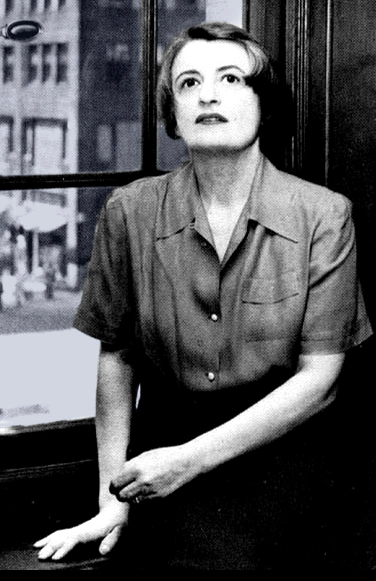
Ayn Rand despised The New Deal—so much so that she nearly gave up her writing career in order to organize against it. The American playwright Channing Pollock was one of Rand’s chief allies in trying to mount a right-wing response to FDR’s “collectivist” policy. In early 1941, Pollock happened to be on a national lecture tour and was using the opportunity to recruit potential members to Rand’s nascent organization. Below, Rand writes to Pollock to thank him for his efforts and to strategize about recruitment efforts. The organization would fail in its early stages, but it was an important learning experience for Rand. She ended up channeling her ideas into The Fountainhead (1943).
May 27, 1941
Dear Mr. Pollock:
I was terribly sorry to hear of the hardships which our organization work has imposed upon you. I realize fully how busy you are and I can only express my admiration for the idealism which caused you to undertake this extra work. Of course, you should not be forced to continue to do so much single-handed. My most earnest suggestion is that we do not wait much longer for our “names.” We can proceed with those we have. They are prominent enough to ensure the prestige of the organization and to remove from it any suspicion of “racket.” If we now call a meeting of those who have agreed to join us, we can take out our incorporation papers, raise the necessary funds—and remove detail, routine work from you. I really do not believe that a large number of prominent men is absolutely necessary at the beginning. What we need most is quality, not quantity—as in all social matters. The other “names” will join us when they see us going ahead on a concrete program of action.
If you prefer to wait a little longer for the latest answers, I would suggest that we meet at least with those of our “names” who are here in New York. They could suggest other names—and take over some of the work and correspondence which you are carrying alone at present. I can help on that, of course, but my name is not prominent enough to sign alone to the original invitations.
I would be afraid to go through Who’s Who in search of new names, because names as such are not what we want; we want people who are widely known as representing our principles; and we must be very certain of the political viewpoint of those we invite to serve on our Committee; a prominent person whom we might invite merely for the sake of his prominence could do us more harm than good.
I think Mr. Nicholas Roosevelt’s opinion that our organization “would be just one more of the same” is a very important criticism for us to remember. We must make it very clear that we intend to formulate and propagate a basic IDEOLOGY of Individualism and Capitalism, a complete philosophy of life restated in the terms of the twentieth century. No organization is doing that. If we don’t make this our first and clearest aim—we will be nothing but “just one more of the same.” Also, we must avoid all generalities, compromises, “softening up” and attempts to pacify or appeal to too many different viewpoints. They all do that—and fail. Unless we stick very clearly, militantly and decisively to our basic principles—and keep these principles clear-cut—we will become another ineffectual patriotic organization.
From Letters of Ayn Rand. Edited by Michael S. Berliner. New York: Plume, 1995.
FURTHER READING
The Young Americans for Liberty review Goddess of the Market, a recent biography of Rand.
Libertarianism.org discusses Rand’s organization that “never got off the ground.”
Was Ayn Rand prejudiced against the poor?


